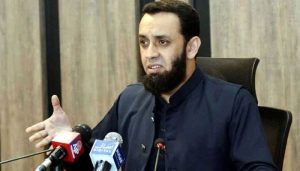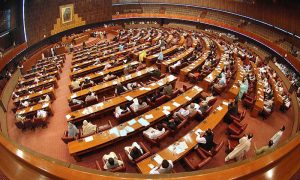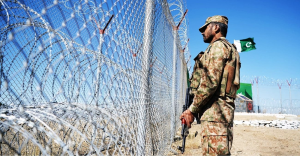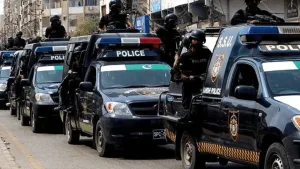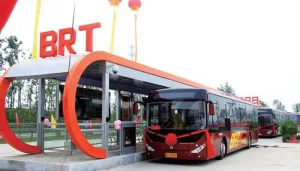Pakistan Bans TLP Over Alleged Links to Terrorism
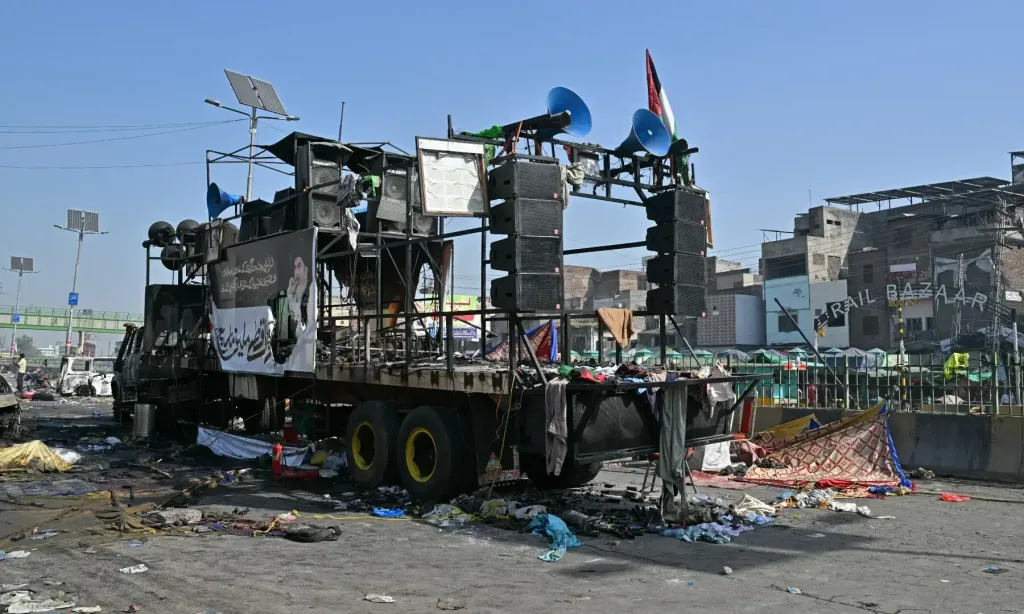
Bilal Haider :
The Interior Ministry on Friday officially declared the Tehreek-i-Labbaik Pakistan (TLP) a proscribed organization, citing credible evidence that the religiopolitical group has connections to terrorism.
According to a notification issued under Section 11B(1)(a) of the Anti-Terrorism Act, 1997, the federal government stated that it had “reasonable grounds to believe” the TLP was involved in activities related to terrorism. The party has now been added to the First Schedule of the Act, which lists banned organizations.
The move came a day after the federal cabinet, led by Prime Minister Shehbaz Sharif, approved a proposal from the Punjab government recommending the ban. The decision followed a wave of violent protests across the country over Gaza, which resulted in the deaths of several protesters and police officers and brought major highways and urban centers — from Karachi to Islamabad — to a standstill.
A statement from the Prime Minister’s Office said the cabinet had unanimously endorsed the ban after reviewing a detailed briefing from the interior ministry on the TLP’s “violent and extremist activities.” Officials noted that the organization had repeatedly disrupted public order and violated assurances made in the past.
The TLP, formed as a movement in 2015 and later registered as a political party in 2016, was previously banned by the PTI government in 2021 following violent demonstrations. That restriction was lifted six months later after the group pledged to refrain from violence — a commitment authorities now say was broken.
“The party’s rallies in the past have resulted in the deaths of security personnel and civilians,” the PMO said, adding that the group’s conduct left the government with “no choice” but to take strict action.
During a cabinet discussion, sources said participants agreed that TLP’s repeated resort to street agitation had caused nationwide disruption, with several describing its approach as “firebrand and destabilizing.”
Speaking later on Geo News, Adviser to the Prime Minister on Political Affairs Rana Sanaullah said the purpose of the ban was not to suppress the group’s religious ideology but to eliminate “anti-state and terrorist elements” within it.
He recalled that previous protests, such as the 2017 Faizabad sit-in, had led to widespread chaos and bloodshed. Minister of State for Interior Talal Chaudhry echoed the sentiment, saying the government had “no alternative” after reviewing reports from provincial administrations documenting the party’s involvement in violent incidents, hate speech, and sectarian provocation.
Legal Context
Under Pakistan’s legal framework, the National Counter-Terrorism Authority (NACTA) maintains a list of banned organizations and individuals associated with terrorism. Those listed face travel bans, asset freezes, and financial sanctions.
Individuals suspected of extremist activity may also be placed on the Fourth Schedule of the Anti-Terrorism Act for close monitoring.
Past proscribed groups include the Tehreek-i-Taliban Pakistan (TTP), Lashkar-i-Jhangvi, Hizbut Tahrir, Jaish-i-Mohammad, and the Baloch Liberation Army (BLA).
The Constitution allows a provincial government to request a federal ban on an organization, as was done in the TLP’s case. Under Article 17(2) of the Constitution, the federal government must refer the matter to the Supreme Court within 15 days for a final decision.
Similarly, Section 212 of the Elections Act, 2017, empowers the government to seek the dissolution of a political party operating against Pakistan’s sovereignty or integrity. However, such a declaration also requires adjudication by the Supreme Court before it can take effect.

